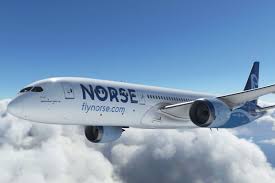The global breakfast cereal market is expected to grow at a CAGR of 7.40% during the period 2025–2034. Breakfast cereals are essentially grains processed for human consumption; these may come as ready-to-eat, or need cooking before being consumed. Today, companies offer many options with different flavours, sweeteners, and added nutrients such as vitamins, minerals, etc. The evolving breakfast habits, demand for healthy convenience food, and innovation in cereal products are key drivers shaping the market landscape globally.
Understanding the Global Breakfast Cereal Market
Breakfast cereals, once dominated by traditional Western diets, have now become a global phenomenon. These products include a wide range of items from cornflakes and muesli to granola and porridge. The increasing pace of urbanization and hectic lifestyles have led to a growing reliance on convenient and nutritious breakfast options.
The breakfast cereal market can be broadly segmented into hot cereals (such as oatmeal) and ready-to-eat cereals (like flakes, puffed cereals, and granola). Each category serves a distinct consumer base, yet they are unified by shared trends in health consciousness, dietary awareness, and brand loyalty.
In emerging economies, the adoption of Western eating habits is fueling market expansion, while in developed countries, the surge in demand for high-protein, gluten-free, or organic cereals is driving premiumization and product diversification.
Expert Market Research
According to Expert Market Research, the global breakfast cereal market is poised for sustained growth, propelled by innovation, health trends, and expanding distribution channels. Expert Market Research provides a detailed overview of consumer behavior, product preferences, and growth dynamics that are reshaping the cereal industry across regions.
Their in-depth reports highlight how key players are leveraging nutritional claims, such as high fiber and low sugar, to tap into the health-conscious segment. The insights also suggest that marketing strategies focusing on sustainability, plant-based ingredients, and functional foods will continue to influence purchasing decisions, particularly among millennials and Gen Z consumers.
Key Market Segments in Breakfast Cereals
By Product Type
Ready-to-Eat (RTE): Includes cornflakes, granola, and extruded cereals.
Hot Cereals: Comprises oatmeal, grits, and other instant porridge types.
By Ingredient
Corn
Wheat
Rice
Oats
Barley
By Distribution Channel
Supermarkets/Hypermarkets
Convenience Stores
Online Retail
Specialty Stores
Each segment is experiencing dynamic changes due to varying dietary trends and advancements in food processing technology.
Market Drivers Fueling Growth
Health and Wellness Trends
One of the most prominent drivers in the breakfast cereal market is the global health and wellness trend. Consumers are increasingly seeking out cereals fortified with protein, fiber, probiotics, and essential vitamins. Whole grains and plant-based alternatives are rising in demand, while sugar content and artificial additives are closely scrutinized.
Urbanization and Hectic Lifestyles
Rapid urbanization and busy daily schedules have made quick, on-the-go breakfast options a necessity for many working individuals and students. Ready-to-eat cereals, requiring little to no preparation time, perfectly address this need.
Rising Disposable Income
With increasing income levels, especially in emerging economies like India, Brazil, and Southeast Asia, more consumers can afford packaged food products, thereby expanding the market base for breakfast cereals.
Innovation and Product Diversification
Brands are investing heavily in R&D to create new flavours, packaging formats, and health-oriented cereal options. Innovations like protein-enriched cereals, keto-friendly granola, and vegan-friendly options are transforming the traditional image of breakfast cereals.
Challenges Facing the Breakfast Cereal Industry
Despite its promising growth, the breakfast cereal market faces several challenges:
Competition from other breakfast alternatives such as smoothies, yogurt, and traditional breakfasts.
Rising raw material costs, especially for grains, nuts, and organic ingredients.
Skepticism around sugar content, especially in cereals targeted at children.
Supply chain disruptions, particularly in post-COVID markets.
Companies must address these concerns through strategic sourcing, transparent labeling, and consistent engagement with evolving consumer values.
Regional Insights: Market Performance by Geography
North America
North America continues to be a leading region in the breakfast cereal market, driven by established consumption patterns, brand loyalty, and widespread availability. The U.S. market is notably influenced by increasing demand for organic and gluten-free cereals.
Europe
In Europe, consumers are more health-conscious and tend to prefer natural and minimally processed cereals. Countries like the UK, Germany, and France show significant demand for muesli and whole grain options.
Asia-Pacific
This region presents the highest growth potential, thanks to increasing disposable incomes and Western lifestyle adoption. China and India, in particular, are witnessing a surge in demand for ready-to-eat cereals, both local and international brands.
Latin America and Middle East & Africa
Emerging markets in Latin America and Africa are beginning to embrace packaged breakfast foods. Infrastructure developments and improved retail channels are supporting this trend.
Competitive Landscape and Major Players
The breakfast cereal market is highly competitive and features a mix of global giants and regional manufacturers. Key players include:
Kellogg Company
General Mills Inc.
Nestlé S.A.
PepsiCo, Inc. (Quaker)
Post Holdings Inc.
Bagrry’s India Ltd.
Nature’s Path Foods
These companies are focused on product innovation, strategic acquisitions, and geographical expansion to maintain and grow market share.
Marketing and Consumer Behavior Trends
Targeting Health-Conscious Consumers
Companies are tailoring marketing campaigns to highlight health benefits such as low sugar, high protein, and gut health support. Influencer marketing, especially via social media platforms, plays a significant role in driving product discovery among younger audiences.
Sustainability and Ethical Sourcing
Eco-conscious consumers are influencing brands to adopt sustainable packaging, reduce plastic use, and ensure ethical sourcing of ingredients like cocoa, nuts, and whole grains.
Customized and Personalized Products
With AI and big data analytics, companies can now offer personalized cereal boxes with selected ingredients tailored to individual dietary needs. This trend is especially prominent in direct-to-consumer (DTC) brands.
Technological Advancements in Cereal Production
Food technology has enabled cereal manufacturers to improve shelf life, retain nutrient value, and reduce the need for artificial preservatives. The integration of automation in cereal production plants has also streamlined operations and enhanced product consistency.
Furthermore, digitalization in the supply chain has helped brands track consumer preferences and adjust inventory dynamically, reducing waste and improving availability.
Future Outlook
The forecast period from 2025 to 2034 shows a positive trajectory for the breakfast cereal market:
Expansion in Plant-Based Cereals: Vegan and dairy-free alternatives are expected to grow rapidly.
Growth of Premium and Gourmet Segments: High-end cereals with exotic ingredients like chia seeds, goji berries, and quinoa will gain traction.
E-commerce Penetration: Online grocery platforms will be pivotal in increasing market accessibility, especially in tier-2 and tier-3 cities.
As brands innovate and evolve with changing preferences, the breakfast cereal market is positioned not only for volume growth but also value enhancement.
Media Contact
Company Name: Claight Corporation (Expert Market Research)
Contact Person: Chander Deep, Corporate Sales Specialist
Email: sales@expertmarketresearch.com
Toll Free Number: +1–415–325–5166 |
Address: 30 North Gould Street, Sheridan, WY 82801, USA
Website: https://www.expertmarketresearch.com


![How do you communicate with Robinhood?[[Helpful]]](https://deepsleeep.com/wp-content/uploads/2025/06/WhatsApp-Image-2025-06-03-at-11.19.12-PM-2-0qB3DhIebi2U.jpeg)

![How do you communicate with Robinhood?[[communicate Robinhood]]](https://deepsleeep.com/wp-content/uploads/2025/06/WhatsApp-Image-2025-06-03-at-11.19.12-PM-RcyJV7OHakUZ.jpeg)
Leave a Reply
You must be logged in to post a comment.